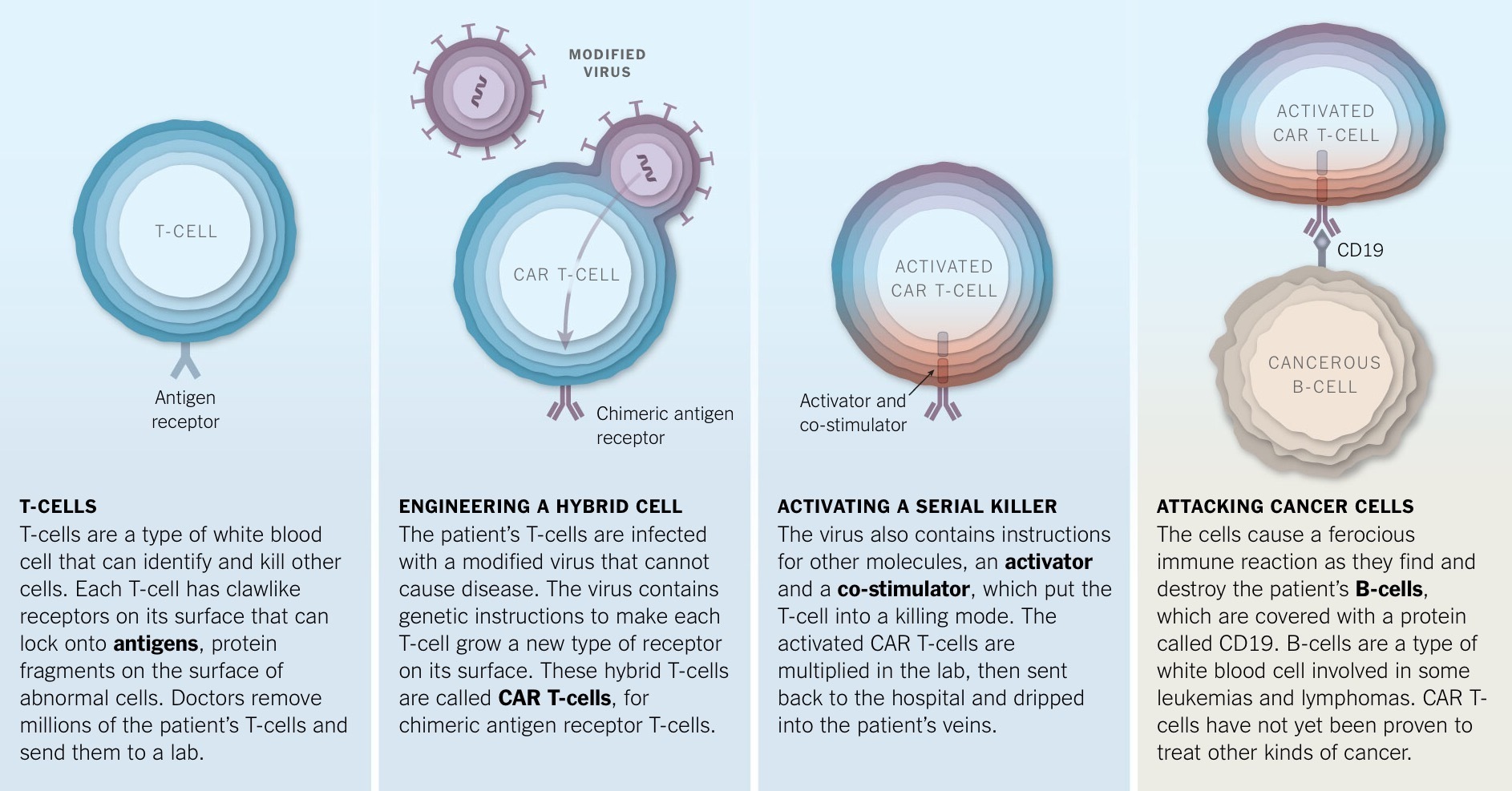Setting the Body’s ‘Serial Killers’ Loose on Cancer
Marlene Breverman stashed this in Cancer treatments
Stashed in: Medicine, Cancer, Immunotherapy
The technique, known as cell therapy, gives each patient an individualized and souped-up version of their own immune system, one that “works better than nature made it,” as Dr. June puts it.
The patient’s T-cells, the soldiers of the immune system, are extracted from the patient’s blood, then genetically engineered to recognize and destroy cancer. The redesigned cells are multiplied in the laboratory, and millions or billions of them are put back into the patient’s bloodstream, set loose like a vast army of tumor assassins.
This is an unusual pharmaceutical — a drug that is alive and can multiply once inside the body. Dr. June calls these cells “serial killers.” A single one can destroy up to 100,000 cancer cells.
The killer cells are genetically engineered to produce a complex protein, an amalgam of pieces from different parts of the immune system that is unlike anything seen before.
“I call it a Frankenstein-like molecule,” said Dr. Renier J. Brentjens, the director of cellular therapeutics at Memorial Sloan Kettering Cancer Center.
This radical, science-fictionlike therapy differs sharply from the more established type of immunotherapy, developed by other researchers. Those off-the-shelf drugs, known as checkpoint inhibitors, release a molecular brake on the immune system, freeing it to fight the cancer much as it fights infections by bacteria or viruses.
Cell therapy, in contrast, is brewed specially for each patient, one of the many challenges the field faces in broadening its use. So far, the number of patients treated with cell therapy is in the hundreds, not thousands. And for now it works only for certain types of blood cancers, not common malignancies like breast and lung cancer. Researchers are also still working out how to control potentially lethal side effects. Just recently, a clinical trial was briefly halted after three patients died of brain swelling.
I never thought of a T Cell as a serial killer before now. :)







1:26 PM Aug 01 2016